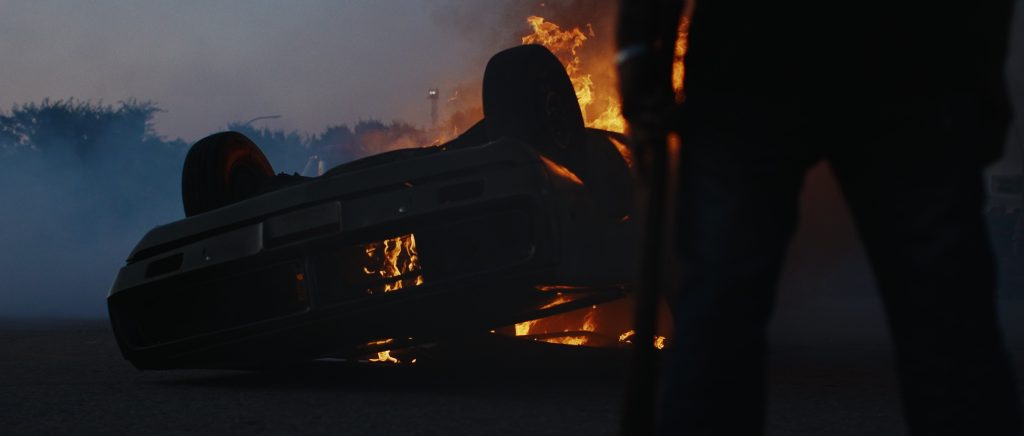Power to Forget – Documentary on the 1972 Common Front
“ The technocrats promised freedom. So did the unions. They wrote history on still-smouldering ashes. ”
Text from the promotional poster
After theatres and television airings, Power to Forget returns. It is now freely accessible, offered to anyone willing to take the risk. No longer within the ritual of a screening, but in digital wandering. A drift that extends the film’s life, though under an uncertain regime.
Many mourn the death of movie theatres. I, a child of the Internet, had both my distractions and my higher knowledge seized by pirates who refused to be customers. An entire generation drank from that same stream in the 2000s. Those outlaws reclaimed, by force if needed, what humanity produces for itself, moved by an irresistible surge of life. Beyond property, beyond authors, beyond producers, beyond everyone whose name appears at the top of the credits.

From the start, this film project on Quebec’s first inter-union Common Front carried within it a contradiction embodied by its title. We cherish injunctions to remember, even when those memories are riddled with myth. Yet to film memory is to record its erasure. Every image, even an archival shot from 1972 framed within an artistic montage, fixes its own decay, like a ruin being built. Benjamin spoke of history as a heap of debris caught in the instant of catastrophe. Adorno distrusted every easy reconciliation with the past. We, too, wanted to hold together memory and forgetting, archive and disappearance, utopia and defeat. And that revolt in Sept-Îles as the image of a catastrophe no one can see anymore, even as it keeps unfolding before our eyes.
The title Power to Forget, proposed by Pierre-Luc and contested on all sides, still holds its force for me. It is not about erasing or exorcising, but about embracing the paradox. Those who reject the irony of the history-making subject, who demand a coherent, polished, or uplifting narrative, are already the greatest amnesiacs. To film is to lose oneself in a new world. To create new myths. To show is to disappear, behind the work, beneath history, within the quiet acceptance of the coming destruction of landscapes that were never truly ours.
The class struggle continues, though stripped of its name. Its echoes still resonate, but in other vocabularies. Its feats, never as glorious as legend claims, have dissolved into the quicksand of management, realism, and spectacle. What remains is a heavy memory, sometimes unbearable, which our therapists of resentment—nationalists, populists, reactionaries—call strength, though it may be only a symptom of their defeat, sanctified under the steamroller of Progress. The Common Front repeats itself endlessly, yet without the dream of emancipation. Beyond a few more dollars. Without novelty, therefore without power.
We might say that better days will come. But not in this form, of that be sure.
Someone might ask, before any further reflection, what is the positive side of the destruction of communities, of cinema as of the Common Front? I would answer: the birth of a different gaze, lighter, younger. The spectator in cyberspace no longer holds the certainties, nor the moral codes of institutions, nor the sociological chatter. Their gesture of distinction, if that is what it is, runs on original forms. They can rely only on their immediate appetite, on the shock of what they see. Without aesthetic shock, there is nothing.
Of course, this taste is shaped by civilization. Yet their isolation exposes them to a naked experience, almost defenseless. In that bareness, they can invent, recombine, build a system in their own measure, or build none at all.
So here we are. For this drifting viewer, too much history paralyzes. Too much memory condemns to impotence. Wonder delivers us from the weight of inheritances, from rehearsed defeats and exhausted victories. This film is destined to fade into other, unknown memories. Let it vanish, so that other forces may arise. New forces. Hopefully uncontrollable.


